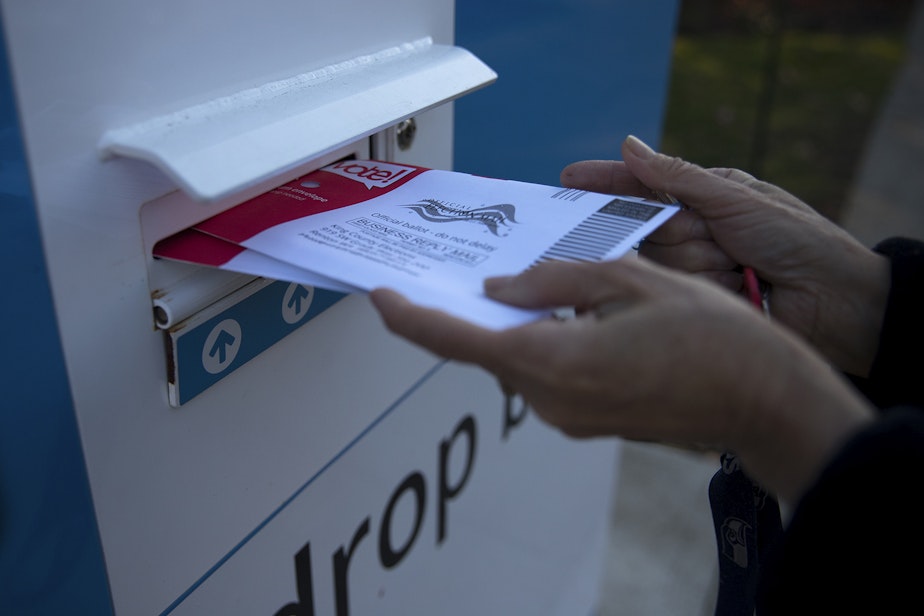Breaking down Tuesday's primary results: Looking at a more diverse Legislature

Ten seats in Congress, a governor, lieutenant governor and many spots in the Legislature. Voters made a lot of decisions in Tuesday's primary.
KUOW's Austin Jenkins has been tracking the results and joined Angela King.
Angela King: Governor Jay Inslee came out on top in the governor's race -- no surprise there. But Loren Culp came in second -- a relatively unknown from a small town in eastern Washington.
Austin Jenkins: It's a very interesting but not entirely surprising outcome. Inslee is, of course, seeking a rare third term. He has the power of incumbency, as well as the benefit of being a Democrat in a state that hasn't elected a Republican governor in four decades. Even so, he's not wildly popular. He's got just shy of 52 percent of the vote, and then we had 35 other candidates vying for the number two spot. The person with the best name recognition was Tim Eyman, the embattled professional initiative sponsor, but he's only getting about 7 percent of vote. Instead, as you note, it's Loren Culp, the chief of police in tiny Republic, Washington, who's in second place with about 17 percent. I had the sense going into the primary that Culp had the advantage. He's got strong, grassroots support among conservatives. His yard signs were everywhere. And he's become something of a hero to gun rights voters for his refusal to enforce a strict gun control measure that passed in 2018. That may be enough to get Culp a second-place finish, but beating Inslee in November ... let's just say that's going to be a tall order.
Let's move on to the race for lieutenant governor. It's the only statewide seat that's open this year. So who's moving ahead there and why is the seat so important?
Current Lieutenant Governor Cyrus Habib isn't running again. And right now the top two vote getters are both Democrats. They are retiring 10th District Congressman Denny hack of Olympia, who's sort of done with the other Washington and wanted to come home. When Habib announced that he wasn't running again, Heck jumped into this race. He's a former House majority Leader, a former chief of staff to Governor Booth Gardner, so he's very familiar around the halls of the state capitol. He's got about 28 percent of the vote. The second place finisher is state Senator Marco Liias, who is the Senate Democrats' floor leader. He's got nearly 17 percent of the vote. The closest Republican challenger is former Seattle City Council candidate Ann Davison Sattler with about 12 percent.
You asked why this position is important. The lieutenant governor fills in when the governor is out of town and presides over the state Senate. So it's kind of a dual executive branch, legislative branch position. And again, it looks like voters may have a choice between two Democrats come November.
There was a concerted effort by a new political action committee to elect a more diverse Legislature. We had nine Black women competing for seats in Olympia. How successful have those candidates been so far?
Well, it looks like all nine will advance to the general election. And there's a very interesting dynamic developing in the 28th Senate District in Pierce County, which has been trending more democratic. There, challenger T'wina Nobles is actually leading incumbent Republican Steve O'Ban in early primary results. If Nobles were to win this November, she would become the first black Washington state senator in a decade.
In the 30th House District, which is in Federal Way, Democrat Jamila Taylor is leading in a race there, and that's an open seat to replace Democrat Christine Reeves, who ran for Congress. And then in a 37th District House race, which is also open in South Seattle, Kirsten Harris-Talley is leading that crowded field with nearly 50 percent of the vote. The bottom line here is the state Legislature has been getting more diverse in recent years and it looks like that trend may continue in 2020.


